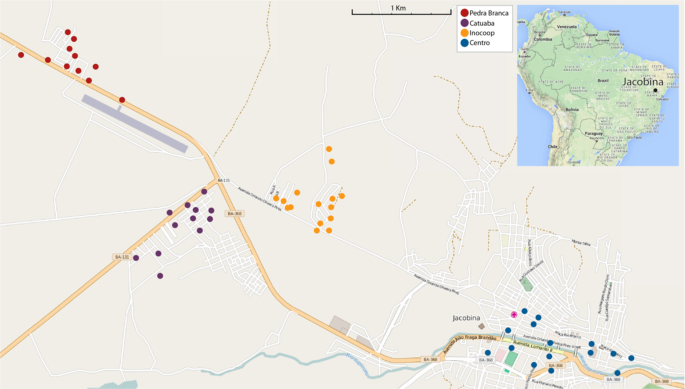Jason Rasgon, an entomologist at Pennsylvania State University in State College who studies insect-borne diseases, says the genetic finding is important. "But I think there are a number of things that are really overhyped and kind of irresponsible about the paper," says Rasgon, who has no financial ties to Oxitec. The authors should have emphasized that they didn't find any mosquitoes carrying Oxitec's transgenes, he says, referring to the two genes, foreign to
A. aegypti, introduced to kill offspring and to fluorescently label the mosquitoes as GM. The novel DNA that did show up in the Jacobina population was from the Oxitec mosquitoes' genetic "background"—a cross between strains from Cuba and Mexico.
Rasgon, like Oxitec, takes issue with the paper's assertion that the mixing of genomes "likely" made the population stronger by increasing its genetic variation. ("Failed GM mosquito control experiment may have strengthened wild bugs," read one headline last week.) "We don't know that that's the case here, but we do know that this population is a hybrid of three strains," Powell says. His team, however, didn't test whether the hybrid mosquitoes were more resistant to pesticides or more likely to transmit disease. Neither was true of the Oxitec mosquitoes themselves, Rose says.
Rasgon is concerned that the
Scientific Reports paper has fueled unfounded suspicions about GM organisms. Previous proposed Oxitec releases in Florida
have faced opposition from residents. "I don't think [the paper] needs to be retracted. But some sort of clarification or a statement or something should be made," he says.


